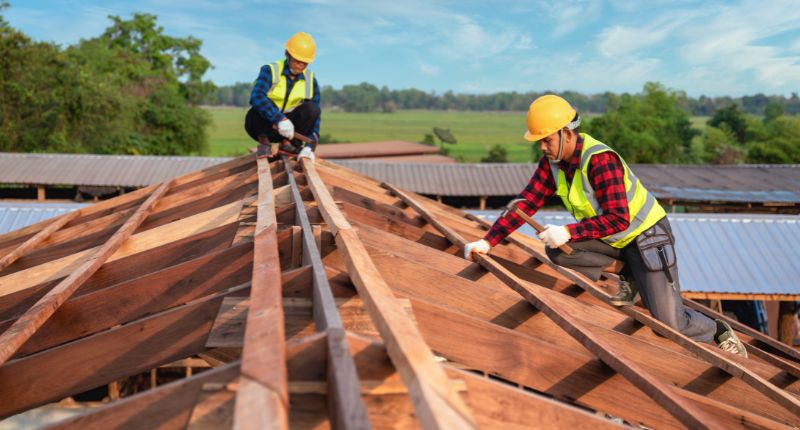
- Nearly half of Australians surveyed do not trust the building industry.
- Building industry suffering from insolvency crisis, which will likely continue.
- iCIRT ratings help Australians choose builders they can trust.
One of the biggest hurdles Australians have faced when looking to invest in a property has been a lack of confidence in the construction industry, according to Equifax’s latest consumer research.
Despite 45% of Australians having expressed the desire to invest in property over the coming five years, 47% cited a lack of trust in the building industry and 34% a dearth of qualified contractors in the market, as the largest hurdles.
An industry in crisis
The construction sector has been plagued with an insolvency crisis, with construction responsible for 31.5% of all insolvency cases in Q3 2023. This trend is likely to persist, with the credit agency downgrading 30% of all construction companies evaluated in the last 18 months.
“Based on our data, we do expect the trend in construction company insolvencies to continue for the rest of 2023 and into 2024 as pressures on the sector persist,” Equifax head of product and rating services, Brad Walters, told The Property Tribune.
“The downgrades have been driven in large part by an erosion of margins and cash flow constraints, a trend which began with the onset of Covid,” he said.
“Margins have been under pressure for some time with well-documented supply chain issues, labour shortages and adverse weather events all contributing to higher project costs and timeframe blowouts in an environment where bottom-line profits have reduced with fixed price contracts the sector norm.
“While some companies might be in more precarious financial positions, these issues, along with the environment of higher interest rates and increased economic uncertainty, are impacting all players regardless of size.”
Naturally, seven in ten Australians have said they were troubled by the mounting insolvencies and how it may affect the nation’s already constrained housing supply.
National total property listings
The figure jumped to three in four when zooming in on individuals planning to invest in property over the next five years.
Along with the insolvencies, the Australian building and construction industry has built a bad reputation over recent years for producing poor quality, shoddy builds. Equifax’s survey found that 41% of Australians had visible damage, structural, or design issues.
“Only one in three Australians have a positive perception of the industry – and there is a big gap to bridge. However, we know there are many capable, reliable and resilient industry players that are dedicated to doing the right thing,” Walters said.
“The opportunity is there to rebuild consumer trust, and for trustworthy building professionals to benefit from improved market confidence.”
Brad Walters, Equifax Head of Product and Rating Services
Consumers willing to pay for better quality
The research revealed that most Australians were willing to pay more for peace of mind; 63% said they were willing to spend more to ensure they were working with a trustworthy developer or builder. The number spiked to 76% for Australians with property plans in the coming five years.
“How can we support consumers and create an opportunity for the building and construction industry after a period of turbulence? That is the big question here,” Walters said.
“We’ve seen Australians familiarising themselves with independent rating tools and learning to use them when looking for credible construction firms and building professionals. One in three of those with property plans are aware of the tools, which is a testament to Australians’ increasing education and due diligence.”
A third of Australians with property plans in the coming five years held a negative view of the construction industry. Interestingly, three out of ten in this group stated that their perception of the industry improved over the past 12 months.
Of the Australians without property plans in the next five years, on the other hand, only 9% reported an improvement in perception.
Importantly, of consumers who knew of the Equifax-developed Independent Construction Industry Rating Tool (iCIRT) there was a 76% improved perception of the construction industry over the past 12 months.
The iCIRT star-rating
The iCIRT star-rating system rates developers, builders, building and design practitioners, certifiers, trade contractors and consultants between one and five stars. Businesses that attain three gold stars or higher are deemed trustworthy.
The rating system is based on an impartial and independent assessment of a business based across six categories including:
- capability
- conduct
- character
- capacity
- capital
- counterparties.
Consumers looking to purchase a property can search the iCIRT registry to find trustworthy builders, giving them more confidence to choose their building professional.
Walters told The Property Tribune that iCIRT would not discriminate between small and larger builders, as each rating is scaled within the businesses’ context, such as its size and structure, ensuring that the ratings were not biased against smaller entities.
“Speaking for iCIRT, we can confidently say that the process of getting rated does not discriminate between small and larger enterprises. In fact, an iCIRT star rating is assigned within the context of the size, structure and sector of the business. This allows us to make a meaningful comparison of a rated party to others of a similar size and nature,” he said.
“iCIRT was designed using the principles of proportionality, to ensure that it was equally appropriate for new and/or small businesses and that there weren’t any unintended consequences.
“This was particularly important within the context that built assets are typically provided through a cascaded delivery model, and that the broader industry is largely small-to-medium sized businesses.
“We’ve observed a similar proportion of larger and smaller businesses (that have been rated) achieving ‘trustworthy’ status (three gold stars or higher), with some small businesses receiving higher rating outcomes than some large businesses.”







